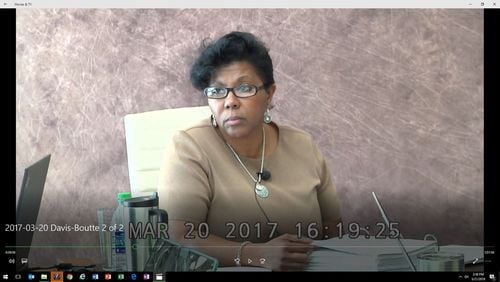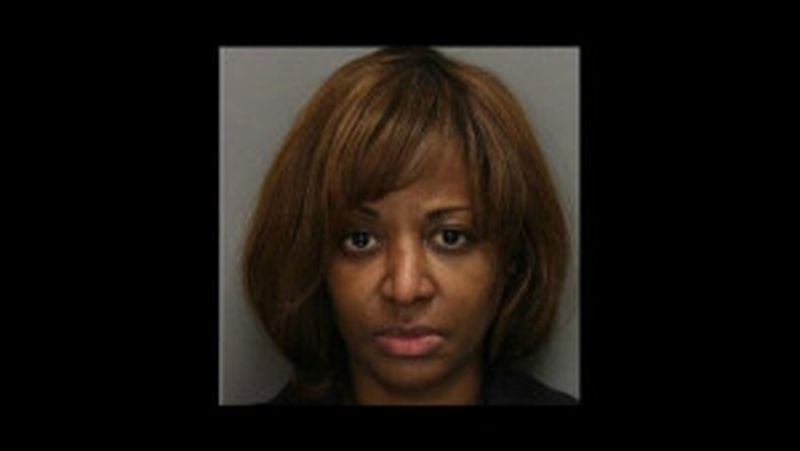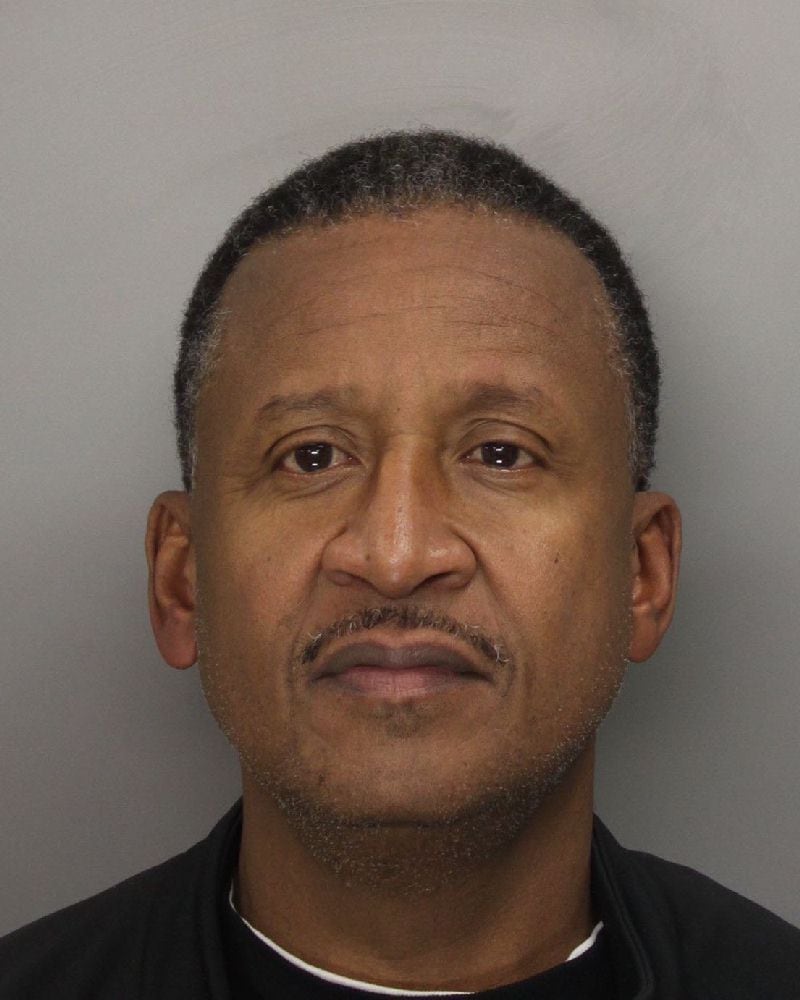» Part 2 of 2 (read Part 1 here)
The goals were beauty and confidence, but the results were disfigurement, disability or death.
In 2013, Dr. Nedra Dodds, who was trained as an ER doctor, performed liposuction and fat injections on a 37-year-old, April Jenkins, who screamed during the surgery, "It's tearing. It's burning." A worker stuffed a towel in her mouth so her fiance in the waiting room couldn't hear the screams. Jenkins ended up dead.
A few months later, another patient who came to Dodds for liposuction and fat transfers died, too.
In 2011, Dr. Nathaniel Johnson III had his medical license restricted after a patient died during a liposuction procedure. He later lost his license for health care fraud, but that didn’t stop him. Police allege the doctors started performing cosmetic surgeries again on unsuspecting patients, using another doctor’s name as cover.
Now, a lawyer and some former patients say Dr. Windell Boutte, who has a high-volume cosmetic surgery practice in Lilburn, is a risky choice. In malpractice lawsuits, they say the doctor exposed them to unqualified staff and an unsafe surgery suite. One patient ended up with permanent brain damage after a cosmetic procedure.
In all these cases, the doctors weren’t operating in hospitals or licensed surgery centers. They were doing procedures that lasted for hours in their medical offices.
In Georgia, that's legal. But that doesn't mean it's safe, according to a joint investigation by The Atlanta Journal-Constitution and Channel 2 Action News.
Doctors decide for themselves what equipment and staff they need. It’s not like a hospital, where a fully-equipped staff can immediately respond to an emergency. If something goes terribly wrong in an office-based procedure, the doctor calls 911.
“Unfortunately there are all these [doctors] that you don’t know what their training is and they set up in their offices and no one is looking over their shoulder,” said Dr. Felmont “Monte” Eaves III, a board-certified plastic surgeon at Emory University and medical director of the Emory Aesthetic Center. “The people who need supervision the most are the ones that get the least. It’s a terrible irony.”
Loophole in Georgia
For years, there have been highly-publicized reports across the nation of deaths involving liposuction and other cosmetic procedures. The deaths often involve young women whose surgeries were done in a medical office or by doctors with questionable credentials.
Some states have passed laws in response. In Florida, for example, in-office liposuction was limited after a series of deaths.
In Georgia, however, there are virtually no limits on who can do cosmetic surgery, where they can do it, and how they advertise. A doctor of any specialty could take a course in liposuction and then attract patients with a website that offers low prices on beauty-enhancing procedures performed in a medical office.
“We see emergency room physicians who are doing boob jobs and tummy tucks – they are total hack jobs,” said Susan Witt, an attorney who has filed three of the seven known lawsuits filed against Boutte. Witt’s investigation of that doctor’s practice, she said, revealed how little Georgia does to protect patients seeking cosmetic procedures. “There is nothing that prevents a doctor from hanging up a shingle and saying they do liposuction.”
» Woman left brain damaged after cosmetic surgery
» Do your homework before cosmetic surgery
Witt said the case of Icilma Cornelius, the patient who ended up with brain damage, was recently settled for an amount that is confidential. Boutte declined to be interviewed by the AJC, but she said in a deposition that the patient’s condition was likely caused by a possible allergy, not any medical care shortcomings.
Georgia does have an elaborate licensing process for outpatient surgery centers that sets all sorts of requirements for equipment, policies, procedures and staffing. Inspectors check the facilities for compliance.
But a loophole in state law allows doctors to completely bypass that process. By not seeking a license, doctors can do surgeries in their offices without having their facilities subjected to the rules or inspections.
State inspectors who went to Boutte’s office in response to a complaint in 2016 reported that it was not a licensed facility and therefore not subject to any of the state’s rules for surgery centers, according to a document obtained by the AJC through the Georgia Open Records Act.
Nor was Boutte’s office accredited by an outside agency, as the Georgia Composite Medical Board recommends for in-office surgeries, according to a deposition. But the guidelines are just that, not hard-and-fast rules. The doctor testified in the deposition last year that her office had a certificate of occupancy from Gwinnett County and that dealt with emergency exits.
Usually it takes a tragic outcome before a doctor is reined in, either by the board or through lawsuits.
After the deaths of Dodds' patients, the medical board eventually took away her license. Johnson gave up his license in 2014 after his fraud conviction. He's facing criminal charges in Cobb County.
No limits
Georgia briefly had one law passed with the goal of protecting cosmetic surgery patients, who often rely on online reviews and advertising that may portray a doctor as having stellar credentials. That law limited doctor advertising when it came to claims about being certified by a national board, allowing doctors to only mention boards with the most rigorous certification requirements.
» Secrecy rules at Georgia medical board
» How a doctor convicted in drugs-for-sex case returned to practice
But the law was repealed after some doctors complained that it unfairly excluded boards they said were legitimate but weren’t recognized by Georgia law.
The lack of limits worries physicians who spent years training to do surgery. Some doctors say that “boards” have been created that require little if any credentials by a doctor, which can mislead patients into believing they are going to a highly-trained physician.
“The problem is, if you can go and take a weekend course and say you are a world expert and you post on the internet all this stuff that makes you look so qualified, and you join all these bogus boards or bogus organizations, then the public doesn’t know how to make an informed choice,” Eaves said. “I think that is a major problem.”
Doctors disagree, though, about what credentials are necessary for a doctor to safely perform cosmetic surgeries.
"The crux of the problem we are having is that, given the state of what I will call 'regular' health care, more and more practitioners want to get into the cash-based, unregulated, non-insurance cosmetic surgery field. Because it's lucrative and unregulated and not subject to insurance, more and more people want to get into it, not all of whom should be in it," said Chris Nuland, general counsel for the Florida Society of Plastic Surgeons.
Nuland said plastic surgeons strongly supported the Florida law that limited how much liposuction doctors could do in their offices and required inspections of office-based surgical facilities for doctors who wanted to do more than minor procedures.
But Dr. Alex Sobel, president of the American Board of Cosmetic Surgery, said some plastic surgeons support legislation aimed at elbowing out other qualified practitioners.
“Several organizations have tried to own the field of cosmetic surgery,” he said. Georgia’s previous law limiting advertising of board credentials to a select group of boards went too far, he said, and he praised Georgia for repealing it. He said the board he leads is rigorous and holds its diplomats to high standards but was excluded by that law.
But Sobel, who practices in the state of Washington, said Georgia should require accreditation of the private offices where doctors perform surgery. That’s what his state does and what his board requires of its members, he said. Outside organizations that inspect and set standards make sure that a facility is fully equipped for emergencies and is staffed by qualified employees, he said.
"You don't want the public to lose faith in what should be the safest form of surgery," he said.
In Georgia, Sen. Renee Unterman, chair of the Senate’s Health and Human Services Committee, said she has been hearing about these safety concerns regarding cosmetic surgeries for years and knows there are issues. But she said the turf war among doctors has gotten in the way of passing laws that would protect consumers without going too far to restrict doctors.
Right now, Unterman said, “it’s a very, very consumer beware atmosphere.”
In case you missed it: Part one of the investigation by the AJC and Channel 2 Action News found that the Georgia Composite Medical Board has taken no action against a Lilburn physician who does cosmetic surgery, even though at least seven malpractice lawsuits have been filed against her. The story is available at myajc.com
About the Author











